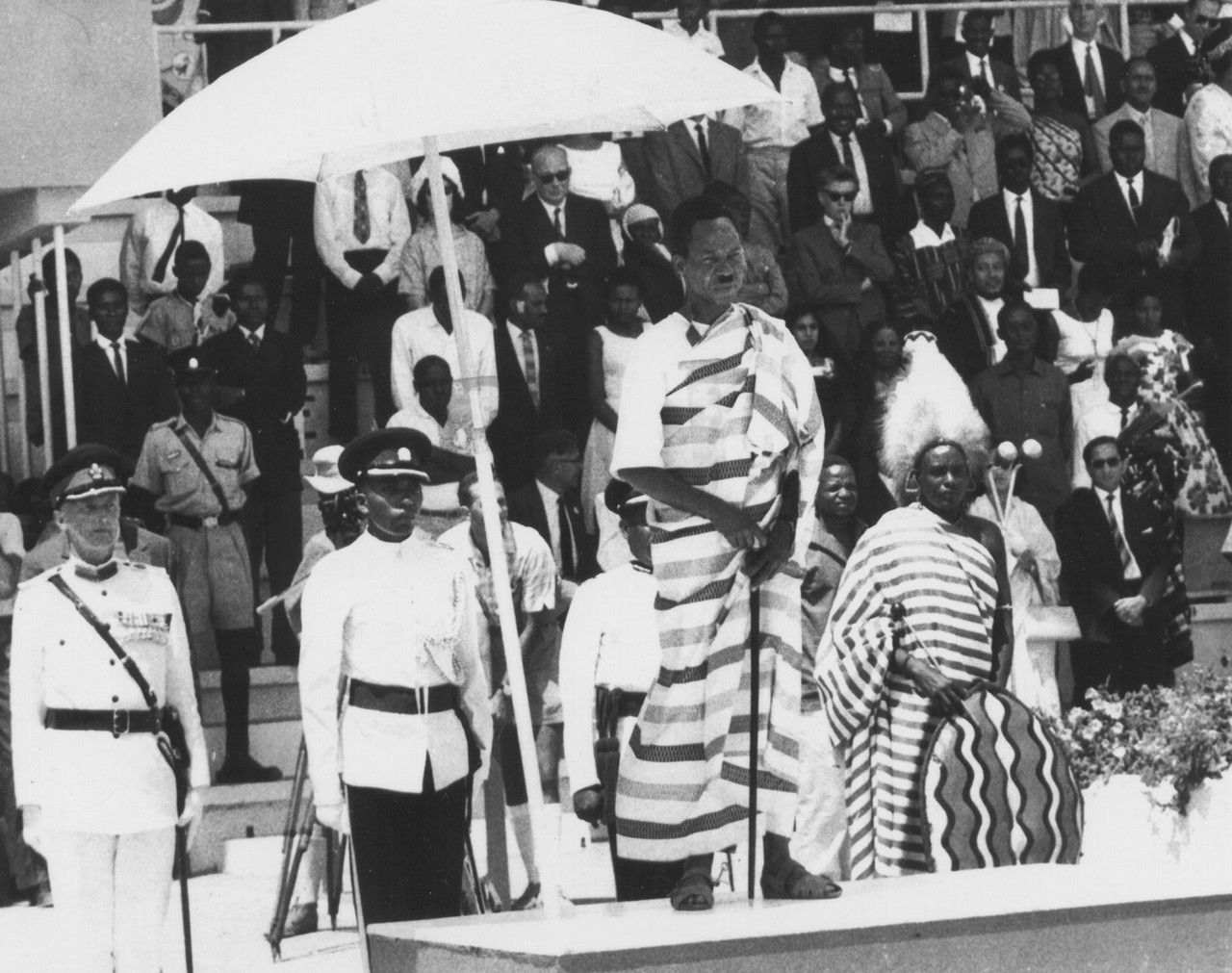Maryam Jafri
Colonial Shadows
23 Feb - 17 Jun 2012

Maryam Jafri
Independence Day 1936 - 1967
Julius Nyerere antes de su discurso, 9 de diciembre 1961
Tanzania
Independence Day 1936 - 1967
Julius Nyerere antes de su discurso, 9 de diciembre 1961
Tanzania
MARYAM JAFRI
Colonial Shadows
23 February – 17 June 2012
Curator: Bettina Steinbrugge
Exhibition Session: Accumulations of Memory
The interest shown by Maryam Jafri in colonial and post-colonial relations is accompanied by a research-based, interdisciplinary approach which associates film and theatre as well as script and document. Jafri is particularly concerned with the question of which role history plays, both in the development of national consciousness and in the creation of individual, personal identity. She likewise explores the boundaries between fact and fiction, history and mythology.
These photos represent a challenge for a Western analysis of culture, where history is only scrutinised from a very particular angle. Yet Maryam Jafri distances herself from precisely this vantage point. When viewing her works, it soon becomes clear that the histories behind these images are dif-ferent; indeed, these are complex systems that must be newly developed in view of a globalised world. Jafri looks back on the visual attestations of specific historical moments in order to make visible that which exists today - the abstract and barely perceptible, perhaps subconscious structures of society and history- by concisely focusing on concrete testimonials. Her approach is never moralising, but instead analytical and open, refusing of the colonial gaze. Involved here is not the history of one single country or of an individual person, but rather a narrative of correlations. The artist discovers the current political moments of the time in photographically documented history and instigates a perceptual process that also starts critically questioning present-day politics of representation. By example of foreign cultures, Jafri mirrors the values and viewpoints of her own culture, giving them a place on stage. With the international political events of the year 2011 - the liberation movements in Egypt, Yemen, Syria - this work assumes heightened topicality. The descendants of the colonised peoples are demanding their rights, are emancipating themselves.
Colonial Shadows
23 February – 17 June 2012
Curator: Bettina Steinbrugge
Exhibition Session: Accumulations of Memory
The interest shown by Maryam Jafri in colonial and post-colonial relations is accompanied by a research-based, interdisciplinary approach which associates film and theatre as well as script and document. Jafri is particularly concerned with the question of which role history plays, both in the development of national consciousness and in the creation of individual, personal identity. She likewise explores the boundaries between fact and fiction, history and mythology.
These photos represent a challenge for a Western analysis of culture, where history is only scrutinised from a very particular angle. Yet Maryam Jafri distances herself from precisely this vantage point. When viewing her works, it soon becomes clear that the histories behind these images are dif-ferent; indeed, these are complex systems that must be newly developed in view of a globalised world. Jafri looks back on the visual attestations of specific historical moments in order to make visible that which exists today - the abstract and barely perceptible, perhaps subconscious structures of society and history- by concisely focusing on concrete testimonials. Her approach is never moralising, but instead analytical and open, refusing of the colonial gaze. Involved here is not the history of one single country or of an individual person, but rather a narrative of correlations. The artist discovers the current political moments of the time in photographically documented history and instigates a perceptual process that also starts critically questioning present-day politics of representation. By example of foreign cultures, Jafri mirrors the values and viewpoints of her own culture, giving them a place on stage. With the international political events of the year 2011 - the liberation movements in Egypt, Yemen, Syria - this work assumes heightened topicality. The descendants of the colonised peoples are demanding their rights, are emancipating themselves.
